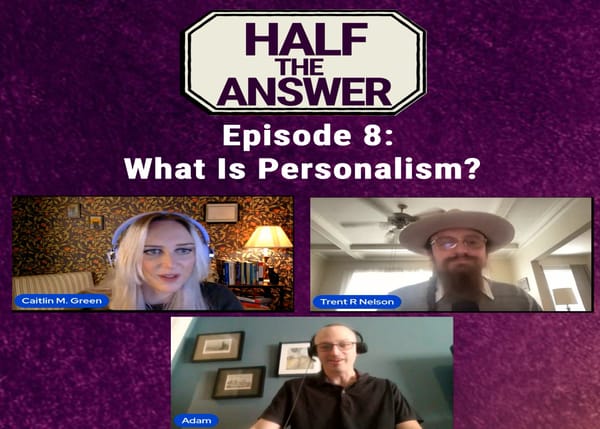The Nomination Lottery

The Democrats are presently courting electoral disaster. Not only is the field of those seeking the Party’s 2020 nomination heavily populated and expanding by the week, but those already in the ring, each with their own strengths and weaknesses, seem to be configured in what former President Obama recently described as a “circular firing squad,” each poised to pull the trigger on some particular opponent. The worry is that, once the smoke dissipates, every plausible nominee will have been mortally wounded in the internecine battle. A greater political gift to the Republicans could hardly be imagined.
Thus the 2020 Democratic Convention will be fraught by the same Catch-22 that plagued its predecessor. If the Party nominates one of its old guard stalwarts, it will be seen as a political machine that mindlessly manufactures “politics as usual.” This will dampen support among younger, more progressive voters. However, nominating an especially progressive candidate carries the risk of alienating older, middle-of-the-road Democrats, who happen also to belong to the demographic that is most likely to turn out on Election Day. Thus the Democrats’ dilemma: A standard-issue nominee nearly ensures a progressive third-party spoiler, driven by the contention that the DNC is hopelessly rigged in favor of milquetoast careerists over visionary change-makers. But nominating a left-progressive candidate will depress Democratic votes in electorally crucial non-coastal states. Hence, despite Trump’s record disapproval ratings and routine expressions of manifest contempt for everything around him, the prospects for the Democrats winning the Presidency in 2020 seem bleak.
This situation has the flavor of a tragedy. The Democrats are agreed that defeating Trump in the general election is their highest priority. Yet their internal disagreements about the relatively paltry details of the candidates’ campaign platforms could be their undoing. And the heartbreak doesn’t stop there. The platform differences among the Democratic hopefuls are trifling as compared to the grand ideals that unify them. Similarly, their divides are microscopic in comparison with the policy differences between any viable Democratic candidate and Trump. Furthermore, we all know that, once in office, elected officials must become pragmatists if they are to achieve anything; campaign platforms shift under the pressures of real-world governing. So no matter which Democrat secures the nomination, if that person wins the election, his or her campaign platform will mutate into a policy agenda that reflects the practical difference between what one wants and what one can get. The sad upshot, then, is that the differences among the Democratic candidates that are currently fueling the impending death-match among them ultimately will not matter for post-election policy, even if a Democrat wins the Presidency.
The tragedy might seem inevitable. But maybe it can be evaded in the following way.
On a common view, majority rule is the very essence of democracy. However, that commitment is in part driven by a deeper democratic value, namely fairness. Our attachment to majoritarian elections derives largely from the idea that a democracy is supposed to ensure that political decisions are made in a way that is fair among all interested parties. Yet voting is not the only way for deciding fairly.
At least since Aristotle, theorists of democracy have recognized that lotteries are legitimate instruments for democratic decision-making. This might at first seem an absurd idea, as if democracy were invested in randomness. However, there are many respects in which a proper lottery models fairness far more reliably than an election. After all, a popular vote can be manipulated by tactics of misinformation, intimidation, pressure, and suppression; these all introduce unfairness into the process. A well-structured lottery, by contrast, guarantees that each option has an equal chance of being selected. What could be fairer?
To be sure, fairness is not the sole democratic value. Traditionally, democracy is also committed to the idea that political decisions must represent the will of the people. Accordingly, we hold elections not simply because they’re fair, but also because they produce results that derive from voters’ judgments. Electoral outcomes hence are claimed to express the voters’ collective judgment, to reflect the popular will. Lotteries, however, do not track judgments at all; they pick rather than choose an outcome. So fairness and representativeness are distinct democratic values, and there are many contexts in which they compete for our allegiance. Nevertheless, there are also special situations in which a lottery is indeed more reliable than an election for representing the popular will in a collective decision. For example, there are cases in which the outcome that a group most wants is more likely to be achieved by a lottery than by an election. This is roughly the Democrats’ current situation.
My proposal is now in view. No Democrat judges that a second Trump term is superior to electing even their lowest-ranked Democratic hopeful; and features of the standard nomination process threaten to increase the likelihood of a second Trump term. So, at the national convention, the Democratic candidate should be chosen by lot among those contenders who have for the previous four months consistently won by a comfortable margin in national polling among likely voters against Trump. This process guarantees to each viable candidate an equal chance of being nominated, thus putting to rest the complaints that frequently motivate splintering and third-party spoiling. In exchange for enacting this fair selection process, the public of likely Democratic voters should be asked to pledge to support, and vote for, whoever wins the nomination lottery.
In return, the Party could promise that, if the Democratic nominee is elected president, it will facilitate a robust national discussion about the specific details of the new administration’s agenda. Hence, as the platform details of the candidates who do not win the lottery would not have been defeated or rebuffed, there would still be open deliberations about exactly how progressive the political agenda should be. In the meantime, the Democratic hopefuls should continue campaigning vigorously across the country on behalf of their individual platforms; they will still be seeking to win support and spark enthusiasm among the voting public. However, as they will no longer be campaigning against one another, they can devote more stump time to the unifying message that the primary Democratic aim is to defeat Trump.
As a result, the Democrats would heighten their chances of achieving the thing they already agree is most important. And if the Democratic candidate wins and then makes good on the pledge to initiate a nation-wide discussion about the details of the agenda moving forward, the Democratic Party might also achieve a result that’s ultimately far more important than winning an election.
Featured image is a picture of Athenian secret ballots, by Sharon Mollerus




